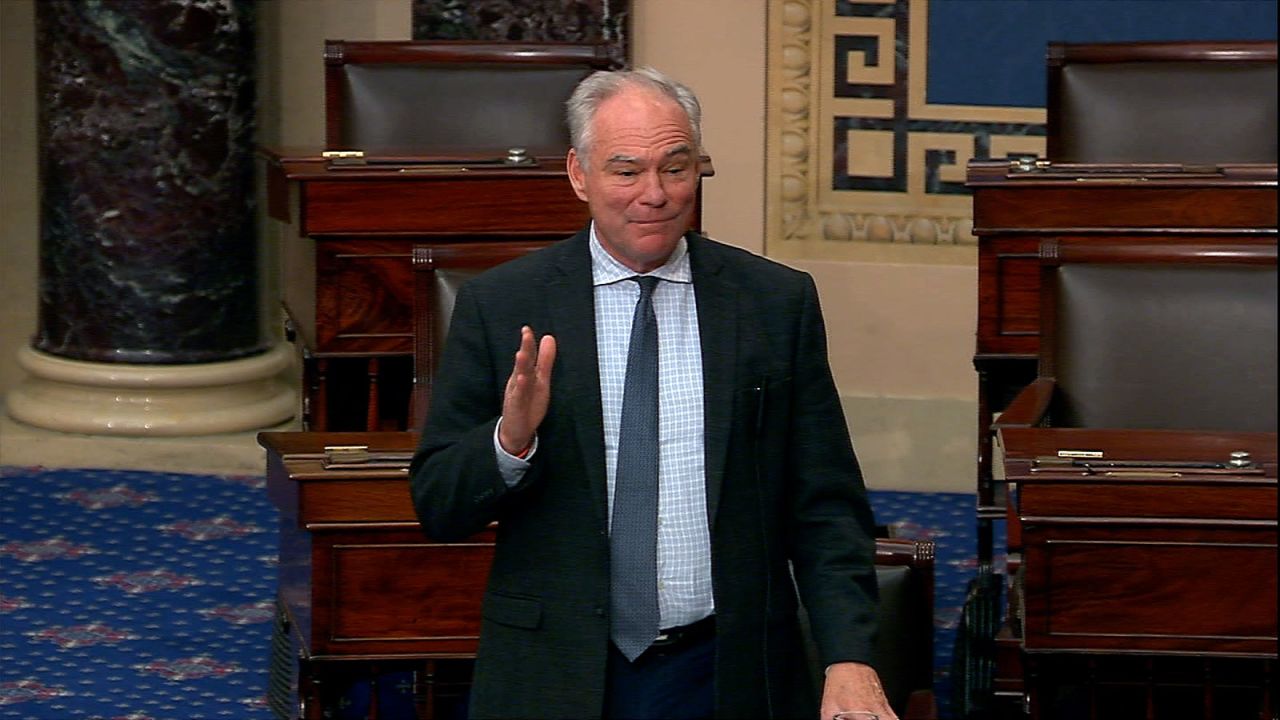The U.S. Senate on Friday rejected a Democrat-backed War Powers Resolution aimed at limiting the President’s authority to launch military operations against Iran without prior approval from Congress. The measure, introduced by Senator Tim Kaine (D-VA) under the War Powers Act of 1973, was brought forward shortly after President Donald Trump authorized airstrikes on three major Iranian nuclear facilities during the recent Israel-Iran conflict.
The resolution would have mandated that any future military action against Iran—unless carried out in direct self-defense or in response to an imminent threat—must first be approved by Congress. The Senate vote fell short of the required threshold, with a 53-47 vote against moving it forward.
In a passionate floor speech, Senator Kaine warned against concentrating war-making powers in the hands of a single individual:
“War is too big to be consigned to the decision of any one person… too important to leave to moods and whims,” he said.
The vote reflected growing partisan divides on military oversight. GOP Senator Rand Paul broke ranks with his party to support the resolution, while Democratic Senator John Fetterman voted against it—surprising many observers. This marked a sharp departure from a 2020 Iran-related War Powers vote, in which eight Republican senators supported limits on presidential war powers, seven of whom remain in office today.
Meanwhile, over in the House of Representatives, a similar resolution may be reintroduced following the July 4 break. Republican Rep. Thomas Massie, a vocal critic of the recent strikes, initially proposed a resolution but chose not to proceed amid the delicate Iran-Israel ceasefire. House Speaker Mike Johnson, however, dismissed the push, calling the War Powers Act “unconstitutional” and insisting the President does not need approval for military responses.
Iran Responds to Trump’s Remarks
As political debate intensifies in Washington, Iran’s Foreign Minister Abbas Araghchi warned that diplomatic talks could collapse if President Trump continues using disrespectful rhetoric toward Iran’s Supreme Leader, Ayatollah Ali Khamenei.
“If President Trump is sincere about reaching a deal with Iran, he must drop the disrespectful tone and insults directed at our Supreme Leader, who has the support of millions,” Araghchi said in a post on X (formerly Twitter).
The warning came in response to Trump’s remarks earlier in the day, in which he accused Khamenei of misleading the public by claiming victory in the recent regional conflict.
“You got beat to hell. And Israel was beat up, too,” Trump said bluntly in a public address.
These developments underscore the fragile nature of U.S.-Iran relations, the legal tug-of-war over presidential war powers, and the deepening political polarization surrounding military engagement and foreign policy in the Middle East.
NEWS SOURCE: CNN





